Support the Management - Community Impact Experiential Learning Fund
Support students in accessing vital hands-on learning opportunities!
Fellows | Projects | Impact Initiative
Fellows

Safiia Abdulkadyrova
Safiia is a third-year BSc student pursuing Honours in Pharmacology with a minor in Management. In the future, she looks forward to studying Global Health and Health Economics to improve Canadian healthcare and healthcare globally. Through the IMSF, she is eager to contribute to the research on implementing EDI initiatives at Desautels.
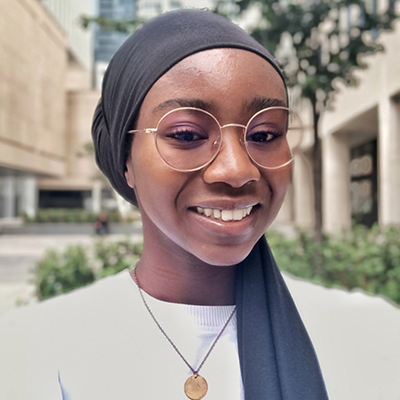
Mariama Ba
Mariama Ba is a second-year BCom student doing a double concentration in Strategic Management and Sustainability. Getting involved in Case League in her first year at McGill made Mariama realize she could see herself working in consulting after college, as she enjoys problem-solving. Mariama has a lot of different interests and loves starting new projects and discovering new hobbies. Mariama’s main interest is social impact, so she would like to work on projects that positively impact the environment and people. At some point, Mariama would like to start her own company.
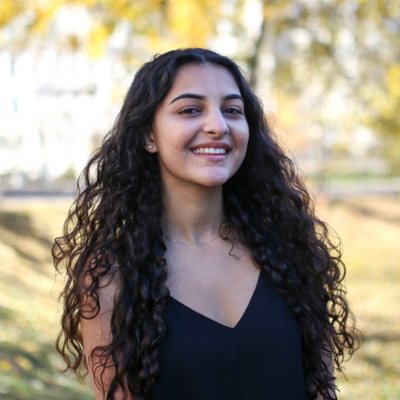
Muskaan Bhaidani
Muskaan Bhaidani is a third-year McGill student majoring in International Development and minoring in Social Entrepreneurship and Communications. Born in Uganda and having lived in Kenya, Muskaan’s upbringing was rooted in inclusivity, community-orientated values and pluralism. In her faculty project with the IMSF, Muskaan will be working with Professor Obukhova on the Laidley Centre of Business Ethics that aims to improve ethical decision-making in current and future leaders.
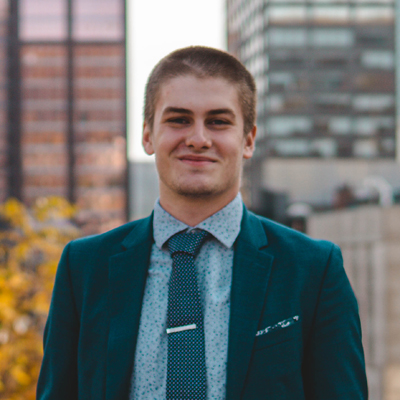
Benjamin Bolduc
Benjamin is a second-year student in joint honours in economics and finance with a minor in philosophy. He is interested in financial markets, cares deeply about the environment, and therefore hopes to use the former to fight the environmental crisis.
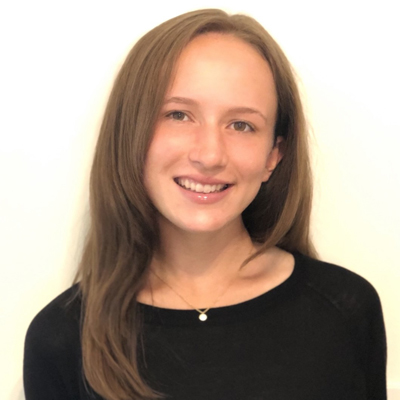
Molly Borritt
Molly is a second-year student from Vancouver, pursuing a Bachelor of Commerce in International Management, with a Concentration in Business Analytics and Minor in Health Geography. She is passionate about the intersection of business and global health. In her free time, Molly plays for McGill’s Varsity Field Hockey team and enjoys backcountry camping.
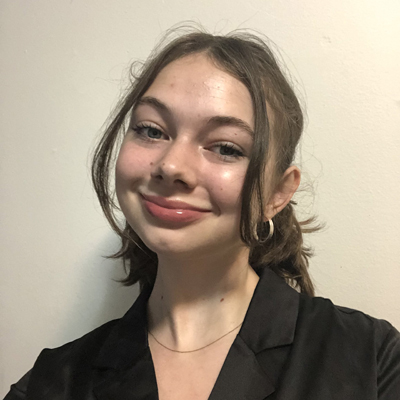
Tayte Brown
Tayte is a U1 student majoring in Managing for Sustainability and currently a Sustainable Events Ambassador with the McGill Office of Sustainability. This year, Tayte will be conducting research with Professor Serpa addressing the topic of How AI Changed Our Food. Tayte aspires to have a career centered around making a change in systems that do not support equity and/or environmental sustainability.

Fiona Chang
Fiona is a second-year BCom student majoring in Finance. She has been involved in volunteering activities and several case competitions. She worked for an NGO during the summer, helping to come up with feasible plans to boost tourism for a start-up company in South Africa. During her free time, she enjoys reading, hiking in nature, and all her leisure time spent with friends and family. She expects to delve deep into the mechanism of the capital market and gain more insights into the industry through the IMSF faculty project. She is also looking forward to collaborating with passionate people and creating meaningful memories that she will always cherish.
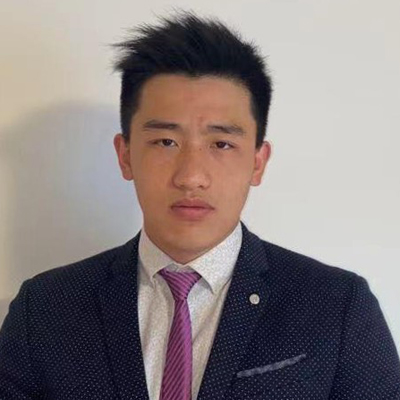
Bowen Chen
Bo Wen is a third-year student majoring in Finance with a concentration in Business Analytics. He had the chance to work in Consulting, Aerospace and the Canadian Armed Forces. He is truly passionate about ESG and sustainable investing strategies. This fall he will be working on Prof. Moore’s research project on “Introvert/Extrovert/ Ambiverts in the C-Suite”.
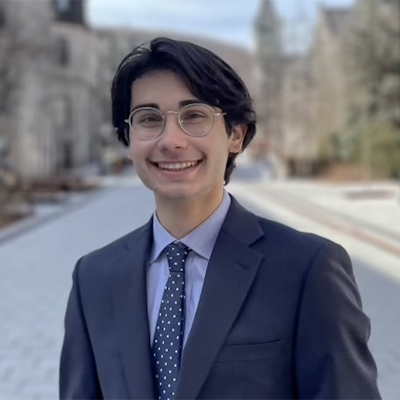
Claudio Cichi
Claudio is completing their final year at McGill University, pursuing a BCom in Sustainability and International Business. Further down the road, Claudio hopes to work in corporate sustainability to aid in the transition to net-zero emissions by 2050. Working with Professor Emine Sarigollu, Claudio’s fellowship is focused on integrating consumers into a circular economy.
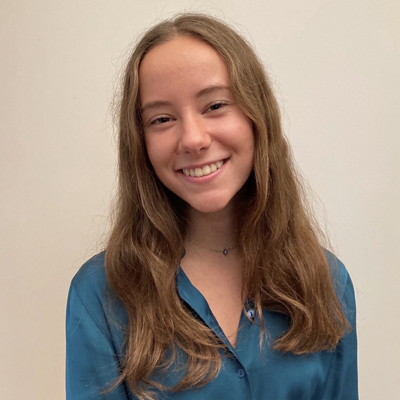
Maëlle Defer
Maëlle Defer is a second-year student pursuing a major in Managing for Sustainability and a concentration in Finance. She developed a sincere passion for sustainability as a child and hopes to make it the focus of her future career. This year, Maëlle is working with the Desautels Sustainability Network as Coordinator of Sustainability Integration, working to create new courses centered around sustainable business, as well as to integrate it into existing Desautels courses.
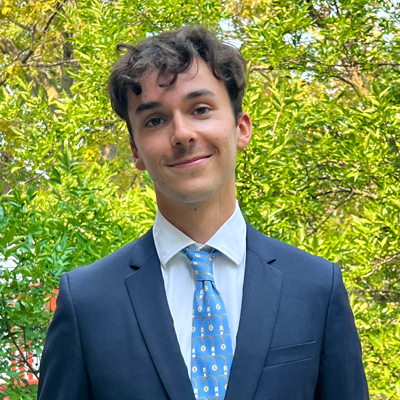
Gery Delepiere
Gery Delepiere is a third-year student at McGill majoring in political science, minoring in social entrepreneurship as well as an avid photographer. In the future Gery aspires to complete a master’s degree in social entrepreneurship, aiming one day to start his own for-profit socially oriented enterprise.

Xuhan Fu
Xuhan is a second-year student pursuing a major in Business Analytics and a concentration in Finance. During CEGEP, she was involved in a volunteer program called MISSIVE organized by the CHSLD Jewish Eldercare Centre. By improving the residents’ lunch experience through data analysis, she believes that data analytics’ expansion and impact on the world is prominent and wishes to pursue a career in this field.
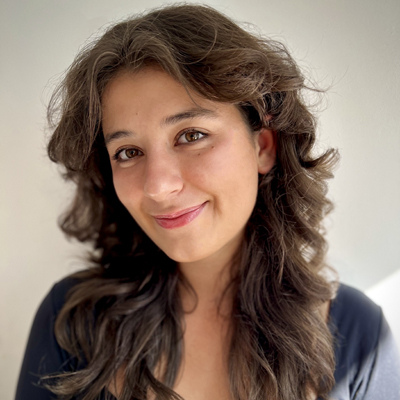
Emma Gurney
Emma is a fourth year BCom student pursuing a major concentration in Strategic Management for Social Enterprise and a minor in Philosophy. Emma is passionate about supporting grassroots social justice movements and has spent the past year and a half as a board member at QPIRG-McGill. This year, Emma will be working with Professor Karunakaren and Professor Etzion to study Sustainability Professionals in Organizations.
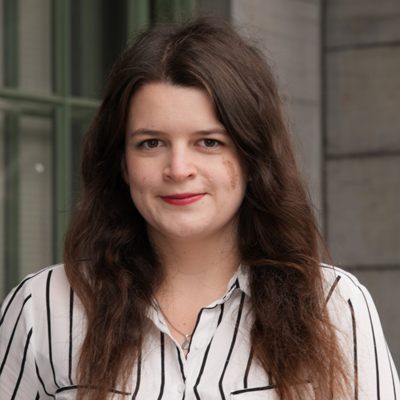
Oceanne Guy
Oceanne is in her final year pursuing a major in Sustainability. She enjoys participating in activities to get out of her comfort zone like case competitions. This summer she worked at Novisto, an all-in-one sustainability platform for companies, and hopes to continue working in this field. This year she will be conducting field research with Dr. Etzion and architecture students on retrofitting buildings in Canada.
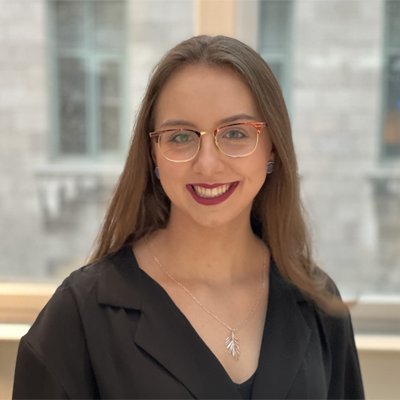
Lauren Harrison
Lauren Harrison is pursuing a degree in Bioengineering with a Management Minor. Lauren has completed internships in start-up and academic research settings, giving her a background in project management and AI. She has also founded $200,000 fundraising events for The CCS and is the President of the largest outdoors club in Canada.
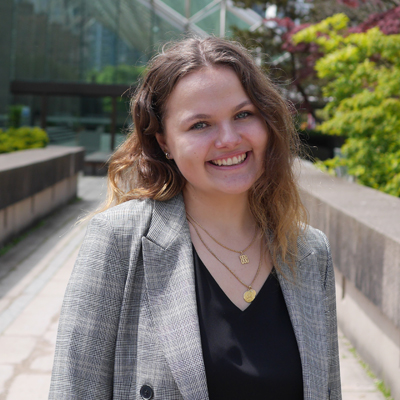
Gabby Hartshorne-Mehl
Gabriele Hartshorne-Mehl is a fourth-year Finance and Political Science student at McGill. Gabby serves as Co-President and Editor-in-Chief of the McGill Business Review. She also produces Professor Karl Moore’s CEO radio show. Upon graduation, Gabby hopes to pursue a career at the intersection of finance and international relations. Under the supervision of Professor Moore, Gabby will analyze and identify trends among corporate executives across the introvert/extrovert spectrum. She will also assist in the creation of Professor Moore’s upcoming book.
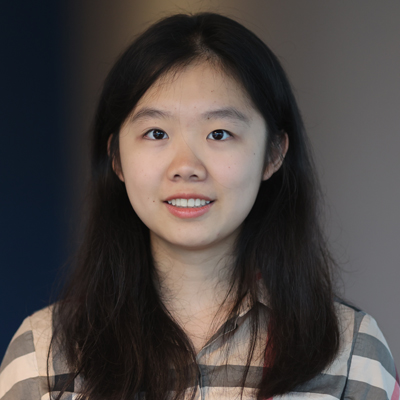
Jingwen He
Jingwen He is in her final years of study at McGill University with a major in Finance and a minor in Math. This year, she is taking an RBC experimental project to apply strategic methods in a real-word example. She aspires to pursue a master’s degree and to work as a financial analyst or lecturer in the future. During her free time, Jingwen enjoys rock climbing and Texas Hold'em.
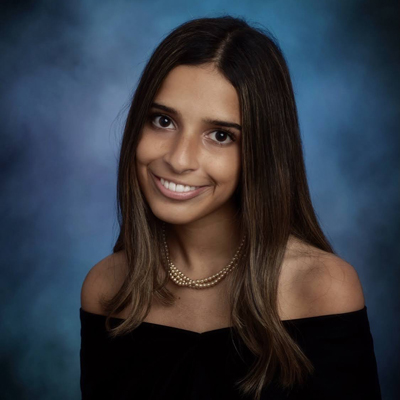
Hana Jamal
Hana Jamal is a fourth-year student at McGill University pursuing a degree in Finance and Marketing. While at McGill, she has further developed her interest in mental health by working with Jack.Org - Canada’s only charity training and empowering young leaders to revolutionize mental health. She has also enjoyed leaning into her Marketing background by being a part of Fashion Business Uncovered and competing in many case competitions. This interest also led her to a marketing analytics internship at Bell Media and an advisory marketing internship at KPMG. For her faculty project, Hana will be looking at consumer behavior in frictionless retail stores with the guidance of Professor Animesh Animesh and Professor Ruturaj Mody. Upon graduation, Hana hopes to pursue a role in management consulting, where she hopes to create impactful strategies that will help the growth of many businesses.
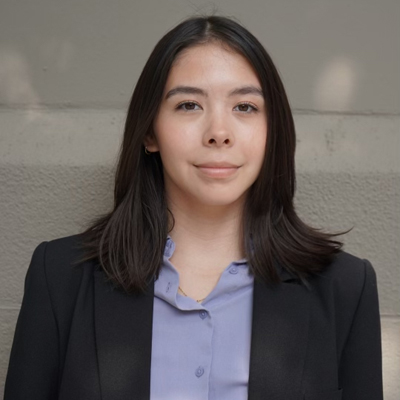
Michelle Kim
Michelle is a third-year student at McGill pursuing a major in Managing for Sustainability with a minor in French. Her passions include spending time outdoors, live music, and understanding the ethical implications of business. Michelle strives to work with Canadian organizations in creating value through effective ESG strategies.

Eva Koall
Eva is entering her last year at McGill, majoring in Managing for Sustainability. Her interest for sustainability was sparked by her love for diving and the ocean. For her future career path, she hopes to combine her field of studies and passion by working with social enterprises focused on ocean conservation.
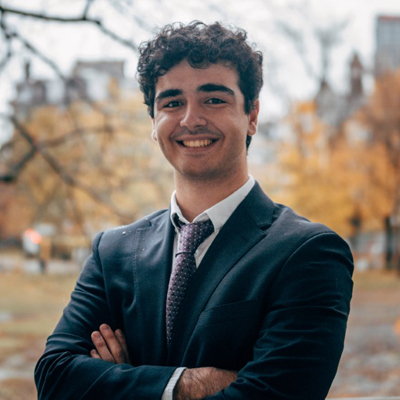
Amine Kobeissi
Amine is a second year BCom student pursuing a major in Business Analytics and a minor in Statistics. He is interested in the application of data-driven technologies to enable society with the power to make the right decisions for themselves, and for the greater good. Throughout his time at McGill, he has been developing his passion in Data and Analytics by joining clubs like PennyDrops as the Director of Insights, where he uses and develops his skills to enable and improve financial literacy education across Canada. Through the IMSF program, Amine will continue to grow his passion for data by working alongside Professor Shoeb Hosain on developing a strategic plan for a DataLab at McGill.
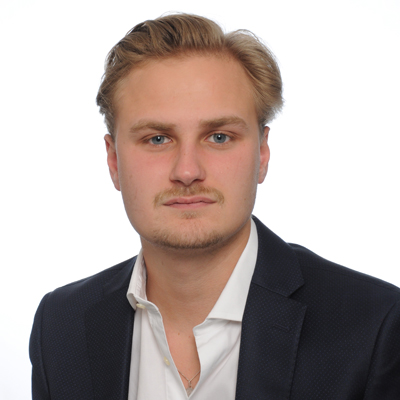
Johan Leander
Johan Leander is a second-year student from Sweden with a major in finance and a minor in entrepreneurship. Passionate from an early age about social entrepreneurship, Johan co-founded ImpactWombats, a non-profit based in Luxembourg, aiming to inspire young people to pursue social entrepreneurship. Wanting to combine the aspects of social entrepreneurship and his interest in finance, he aspires to work in the field of Impact Investing, specifically on the African continent. Racing cars on the side-line of school, Johan is a fond lover of motorsports.

JiPeng Li
JiPeng Li is a third-year student majoring in Finance. JiPeng’s current career interests include being a financial analyst and investment banking. Also, JiPeng had the chance to intern at Cummins which allowed him to discover the logistics of the heavy equipment industry. By joining Prof. Tan’s Literature Review of the Chinese Financial Market, JiPeng looks forward to learning more about the Chinese financial market and developing his own perspective of its current state.

Crystal Lin
Crystal is a second-year student at McGill majoring in Business Analytics. She is passionate about furthering her skills and knowledge through community involvement. In the future, Crystal hopes to combine her interests in art and data analytics by working for a media company in product management.
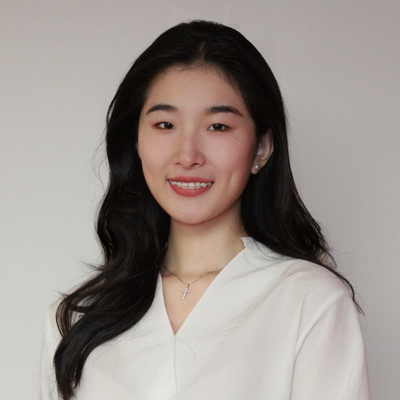
Mingshu Liu
Mingshu Liu is currently majoring in statistics and minoring in computer science in the Faculty of Management in her second year at McGill. She is passionate about discovering how mathematics and computers can help with problem solving in the business world in creative ways. Alongside her studies, she also has a variety of hobbies, such as singing, dancing, drawing, and is in the process of opening an e-business this September with her friend starting from the Instagram platform. This year, she will be working on the faculty project of Market Design in Creator Economy with Professor So.
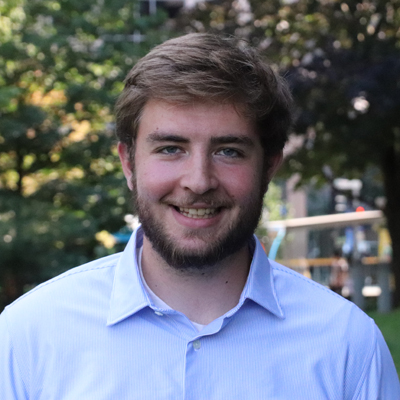
Adam Livshits
Adam is a 4th year student pursuing his BCom in Economics with a Concentration in Sustainability. He is passionate about sustainable business and has joined the HSBC Social Innovation Academy and ESG McGill during his university career. Under the supervision of Professor Perez-Aleman, Adam will be researching how Covid-19 has affected agriculture supply chains.
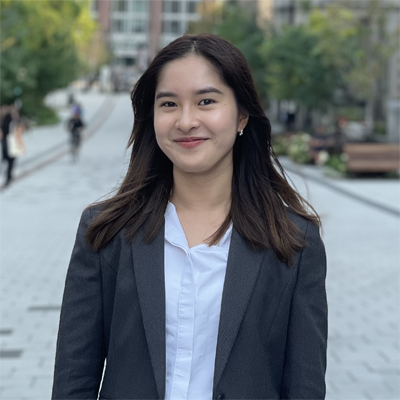
Casey Luk
Casey Luk is a second-year BCom student majoring in Strategic Management with a concentration in Managing for Sustainability and she is passionate about social impact consulting. Carrying her avid interest in creating a positive change, she will be working with Prof. Juan Camilo Serpa to better understand the effect of AI on animal welfare, the economy, human health, and social equity.
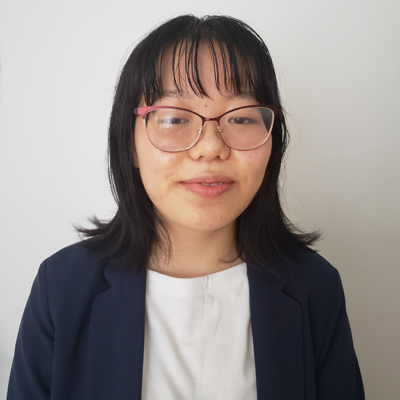
Danlin Luo
Danlin is a second-year student majoring in finance and minoring in computer science. She is looking to understand her own interests and has found sustainability to be an area in which she can make an impact on the world. In her free time, she enjoys drawing and knitting.
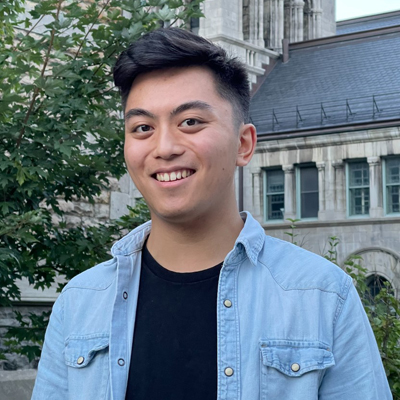
Andrew Ma
Andrew is a fourth-year double degree student majoring in music education and minoring in entrepreneurship and French literature. He is passionate about expanding access to education and hopes to pursue a graduate degree in business administration focusing on design and innovation. Currently, he is working on "Negotiation and Generation Z" under the supervision of Prof. Jean-Nicolas Reyt.

Alex Main
Alexander Main is in his final year at McGill University, pursing a BCom with a major in finance and a double concentration in computer science and business analytics. He has worked at Noetic Fund, a venture capital firm specializing in innovative pharmaceuticals as well as Nephila Climate, a hedge fund focused on de-risking renewable energy production using derivative products. Alex will be joining CIBC’s investment bank in Toronto upon graduation in May 2023 and has ambition to help decarbonize the balance sheets of multinational firms.
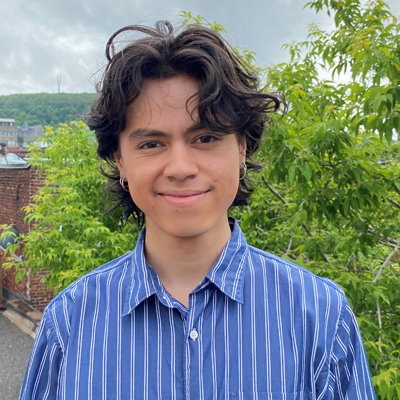
Tanguy Montandon
Tanguy is a third-year student pursuing an Honours degree in International Development and Economics. He developed a passion for using impact investment as a tool for sustainable development by working with the Montreal Social Value Fund and sees strong potential to achieve the SDGs with businesses. He is particularly interested in building circular economies and increasing resilience in society. Under the supervision of Professor Sanjith Gopalakrishnan, Tanguy will be researching the economic and environmental impacts of BIXI, Montreal's bike-sharing program.
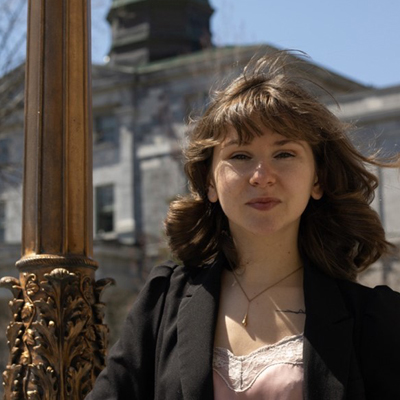
Maëlle Morin
Maëlle is a French salsa addict who enjoys being a hostel’s Receptionist and Language Exchange Meetings Organizer during weekends. This is however Maëlle’s motivation to help companies improve their environmental, social and economic impact which built her interest for the 2022 IMSF program. Ideally, Maëlle could take on a mediator role between more established companies and emerging ones, to encourage knowledge sharing and mutual improvement. Maëlle is currently in her second year of the BCom program, majoring in Managing for Sustainability and will be working on Professor Beaumont’s project. The most mind opening and relevant working experiences to Maëlle’s career aspirations have been so far: Maëlle’s role as an Export agent in the French veterinarian services, her 2022 internship in a French consulting agency and her Peruvian 2022 humanitarian mission for which she enrolled as a volunteer program coordinator.
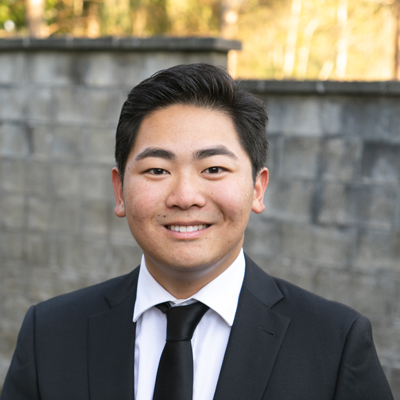
Woo Park
Woo Park is in his penultimate year at Desautels pursuing a Majoring in Finance and Strategy. Throughout his studies at McGill, he developed a deep passion for Consulting as he discovered his love for critical thinking and problem solving in collaborative settings. He now leads MSBN, McGill’s biggest pro-bono practice driving value to Montreal non-profits.

Zhixuan Ren
Zhixuan is in her final year at Desautels Faculty of Management. She is pursuing a double major in Statistics and Business Analytics and she aspires to pursue a career in analytics or technology industry after graduation. This year, Zhixuan will work with Professors Yu Ma and Laurette Dubé to analyze and support consumer food purchases through loyalty programs.
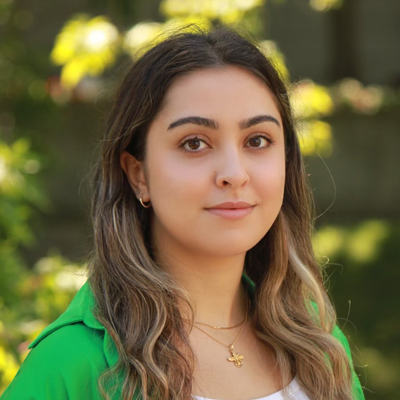
Yasmin Salehi-Banadaki
Yasmin is a third-year software engineering student. Yasmin’s interests are in marketing and sustainability (more specifically renewable energy). Yasmin hopes to combine her passion for renewable energy, business and her software major to produce less emissions and increase economic advantage. Yasmin will be working with Dr. Mukherjee and Dr. Animesh to research consumer decision making in retail labs.
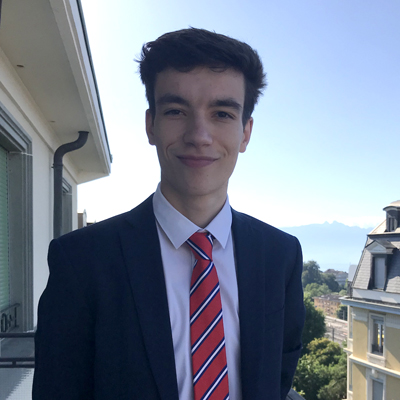
Tom Secheyron
Tom Secheyron is a U3, third year student in the Faculty of Arts, majoring in Political Science with a double minor in International Development and Social Entrepreneurship. A lifelong athlete and now part of the McGill Varsity Cross Country and Track & Field teams, Tom believes that sports can be a catalyst for social change and development worldwide. He is excited about working alongside Professor Hanley to change the outlook of precarious workers’ lives in a long-lasting manner. Upon graduation, he hopes to transfer these skills to a sports-inclined context.
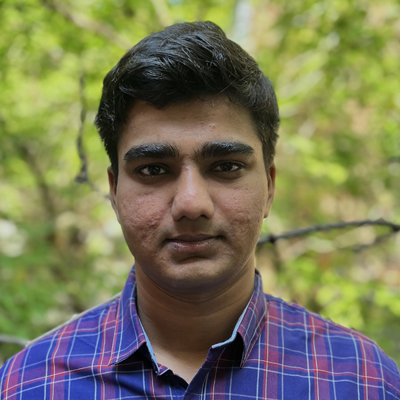
Atharva Shirsat
Atharva is currently completing his final year at McGill University, studying Economics and Social Entrepreneurship. Atharva’s interests are in sustainable development and public policy and he is hoping to implement the aspect of sustainability in policy formation to frame policies that have a social and systematic impact. Atharva is working with Professor Kwangjun An to research on Corporate Human Capital Disclosure Choices. The project aims to understand human capital related activities in public companies and construct a dictionary to quantify human capital reports.
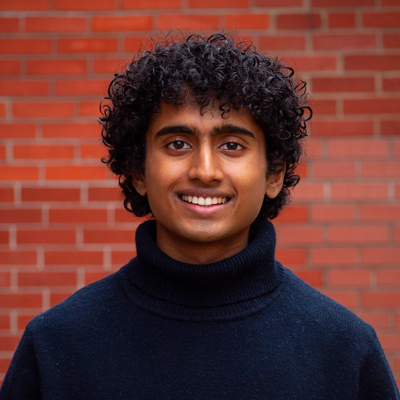
Vishwa Srinivasan
Vishwa is a second-year BCom student in Honours Economics. His primary interest is in the relationships between sustainability, international relations, and the world of business. He plans on eventually pursuing a career that allows him to advance those interests. In his spare time Vishwa co-hosts a podcast, plays guitar in a band, and cooks for his friends. This year Vishwa is working alongside Professor Dror Etzion and the Department of Architecture on the ReCONstruct project, with the goal of creating retrofitting processes that allow old buildings to increase their energy efficiency.

Sofi Sun
Sofi is a third year McGill student pursuing a major in Finance and concentration in Accounting. As a result of her keen sense of numbers, she is passionate about analyzing financial information. Upon graduation, she intends to pursue a career in valuation companies or venture capital firms.
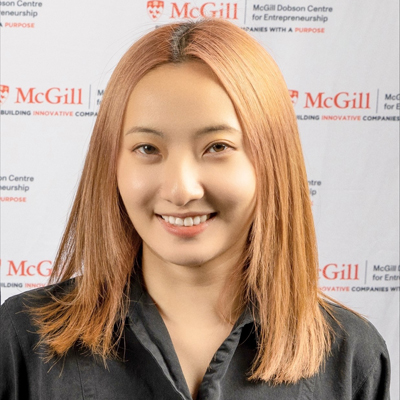
Tina Tan
Tina Tan is a third-year student pursuing a major in Mathematics and a minor in Management. Tina is interested in both the theoretical and applied sides of mathematics and would like to explore how to use maths to improve decision-making in management for her graduate study. Having studied in an international high school in Paris provided Tina with an opportunity to make friends from all over the world and experience a multicultural learning environment. The difference in people’s cultural and political perspectives has especially attracted Tina’s attention after living in two different countries during covid and seeing how differently people reacted to public policies. This led Tina to choose Professor Masi's research project on trajectory of covid-19 pandemic, aiming to discover more about cross-cultural management.
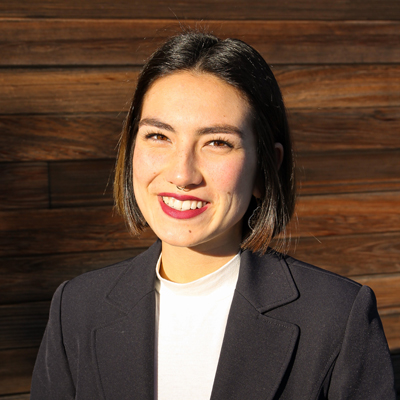
Catherine Thomas
Catherine Thomas is a fourth-year Sociology major with minors in English literature and social entrepreneurship. With the leadership of Prof. Perez-Aleman, she will study “Sustainability in Agricultural Global Value Chains Affected by Covid-19”. After graduation, she hopes to work in the impact investing field to support socially sustainable start-ups.
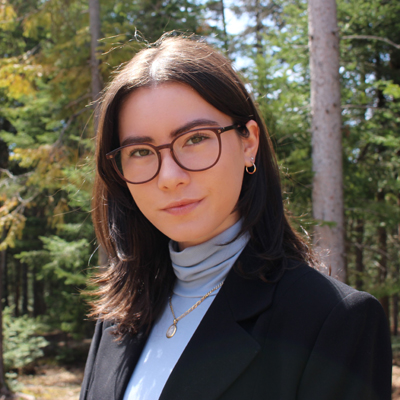
Marianna Tokarcik-Bermudez
Marianna is in her penultimate year pursuing a BCom in Honours in Economics with a concentration in Managing for Sustainability. Her involvement in DSN and ESG McGill fuels her passion for sustainable finance and investing. She is also currently the VP of events at McGill Ventures, where she is interested in sustainable venture capital.
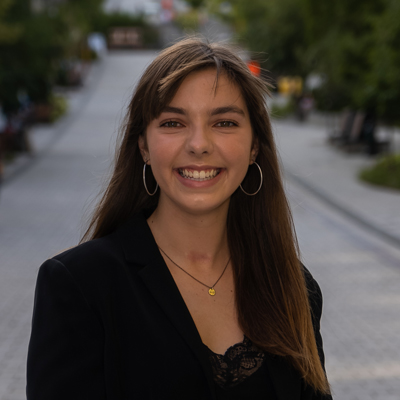
Izabella Tyc
Izabella is a U3 BCom Finance major with a Data Analytics concentration. A lover of case competitions, Izabella is currently the DMCC Director of Academics helping students sharpen their cracking skills for this year’s competitions. Izabella's project with Professor Lisa Cohen will involve creating Equity, Diversity initiatives for McGill.
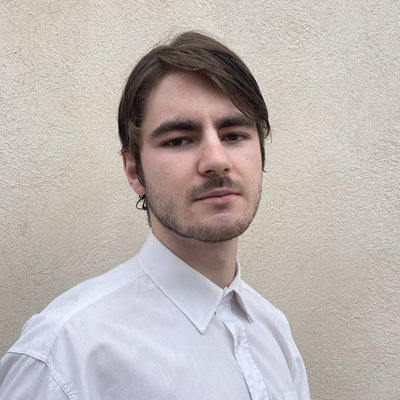
Rudi Villemaux
Rudi is in his third year at McGill, where he is pursuing concentrations in strategic management and sustainability management, as well as a minor in political science. His interest in sustainability led him to become the Marketing Director of the Desautels Sustainability Network (DSN) and to join the Montreal social value fund, which is the first student-led impact investment group in Quebec. Through the Montreal Social Value Fund (MSVF), he learned to use an impact approach to invest in local social enterprises, entrepreneurial non-profits and cooperatives that address social and environmental issues in the Montreal community. Through his professional experiences at Publimah and Haribo, he has always wanted to demonstrate that it is possible to drive business growth through local, social and environmental impact. As part of his IMSF faculty project with Professor Sanjith Gopalakrishnan, Rudi will be conducting a study on the environmental and economic impacts of Montreal's Bixi bike-share program. Rudi is open to various career paths in impact investing, consulting, risk management and public management.
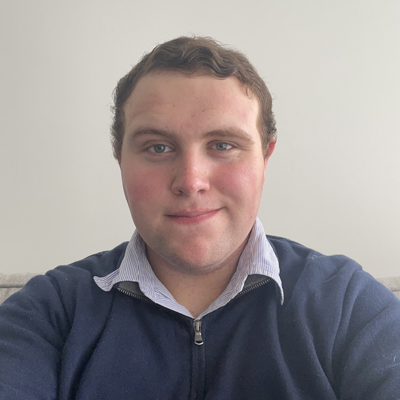
Thomas Wakeham
Thomas is an Accounting BCom student. Alongside Professors Peter Oh and Jingjing Zhang, he is researching plans taken by audit committees before the financial restatement announcement. In addition, Thomas worked at EY as an audit intern. In his spare time, he plays intramural sports and enjoys reading autobiographies.
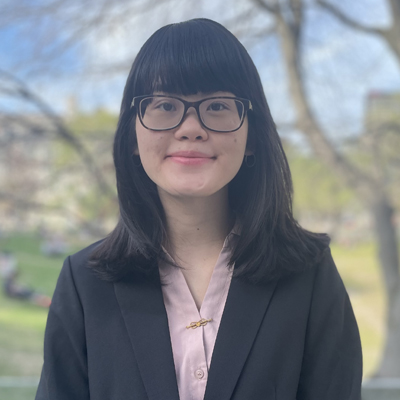
Grace Williams
Grace is a fourth-year BCom student studying Sustainability and International Development. Through her experience at the Montreal Social Value Fund and Social Venture Connexion, she has developed a passion and career interest in impact investing. She is also an Ethics Ambassador at the new Laidley Centre for Business Ethics and Secretary at McGill Caribbean Council. Grace looks forward to researching the informal economy in South Africa for her faculty project.

Sydney Yu
Sydney is a fourth-year BCom student pursuing a major in Finance and a concentration in Business Analytics. Driven by a passion for data analytics and project management, she is aspiring to pursue a career where she can create effective systems and innovate on strategic plans. She also cares about inequality in healthcare and has a particular interest in improving current frameworks in medical resources. For the project, Sydney will work with Professor Shoeb Hosain on building an analytics community that advocates lifelong learning.
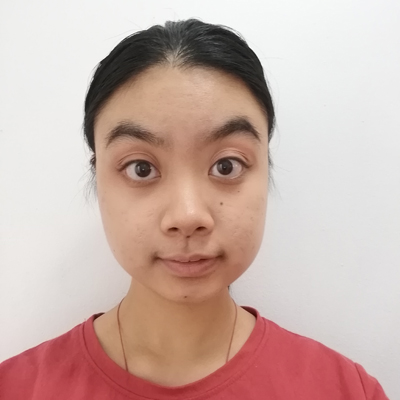
ZiRui Zhou
Annie (ZiRui) is a third-year student, majoring in Accounting and pursuing a CPA position. Curious about how sustainability works in the real world, she joined the IMSF. In her first semester, she worked with Professor Kwangjun An for Human Capital Disclosure (HCD), where she learned how to build frameworks and define criteria. In the new semester, she devotes herself to Professor Peter Oh’s project on Clawback Provisions and Corporate Social Responsibility, specifically on data analysis. In addition to research, Annie is keen on education, and she currently works at Varsity as a tutor, coaching students in Accounting, Economics, Math, Mandarin, etc. In her free time, Annie loves music and is a Guzheng player in the McGill Chinese Student’s Music Society (MSCMS).
Projects
Animating the Informal Economy: Evidence from South African Townships
The informal economy, defined as business activities that occur outside of formal institutional boundaries but within the boundaries of informal institutions, is a massive force in the engine of the world economy, but it remains largely shrouded in secrecy and hidden from sight. The goal of our research program is to unveil entrepreneurial dynamics in the informal economy. In collaboration with a local NGO, we will explore the role of non-market institutions in driving informal economic activity in the townships of Cape Town, South Africa. We have collected a unique set of assessing the state of informal economic activity using a promising “small area census approach,” which collects survey, visual, and spatial data on the entire population of micro-enterprises in a township. We now have data for three waves in Delft South (2011, 2015, 2021). The purpose of this project will be to link these waves of data together and investigate patterns in firm emergence, composition, and strategy. We will focus especially on utilizing the geospatial and photographic data in novel ways. The goal of this project will help enable authentic theory development on entrepreneurial activities in the informal economy and expand understanding of what entrepreneurship is and looks like in practice.
Faculty Supervisor: Prof. Robert Nason, Strategy & Organization
Fellow(s): Grace Williams (Major in Sustainability, Minor in International Development)
Building and Measuring an Analytics Community through Life-Long-Learning
In this exploratory project, we will look to researching, measuring and defining how to develop an Analytics community for Desautels, McGill, Montreal and Canada. This project will have 3 parts: The 1st being a strategic plan in developing an ‘Analytics Community CRM’ for those who want to develop their technical acumen over their careers. The 2nd is to quantify community members progression in their careers, and the 3rd is developing a Life-Long-Learning strategies for learning & growth streams. Students will work on elements of the project that complement their strengths and interest, and should think about this as Phase 1 of a multi-staged project.
Faculty Supervisor: Prof. Shoeb Hosain, Operations Management
Fellow(s): Amine Kobeissi (Major in Information Systems, Minor in Statistics) and Aoduo Yu (Major in Accounting, Minor in Statistics)
Building Resilient Social Enterprises
Social enterprises aspire to achieve financial sustainability without compromising their social mission. Despite the growing interest in the phenomenon of social entrepreneurship, many social enterprises struggle to survive in the competitive marketplace and have been exposed to various shocks and disturbances during the COVID-19 pandemic. The Fellows will participate in an ongoing field study of social enterprises that have been facing significant financial and other forms of challenges. Through an in-depth study of organizations that have ceased to exist, as well as those that continue to operate and thrive, the project aims to offer insights into building resilient social enterprises.
Faculty Supervisor: Prof. Anna Kim, Strategy & Organization
Fellow(s): Eva Koall (Managing for Sustainability Major / Strategic Management Minor)
Consumer Decision-Making in the Retail Lab in Bronfman (i.e. Couche Tard)
This research project will explore the drivers of consumer decision making in the physical Couche Tard Retail Lab as well as the virtual VR app of the Couche Tard Retail Lab. Different elements of the physical and virtual store (e.g., prices, background videos, products) will be varied and consumer responses will be measured. This project will provide new insight into factors that influence consumers in a retail context.
Faculty Supervisor: Prof. Ashesh Mukherjee, Marketing; Professor Animesh Animesh, Information Systems
Fellow(s): Yasmin Salehi-Banadaki (Bioresource Engineering)
Corporate Human Capital Disclosure Choices
Parallel with growing stakeholder attention to human capital management (HCM), this research project investigates how companies approach the HCM disclosure. Specifically, it tackles two questions that remain underexplored in finance and management research: 1) what claims do companies make in addressing HCM details? and 2) what factors might account for the presence of such claims? This project benefits from recent amendments issued by the Securities Exchange Commission that include the requirement of the description of a registrant’s human capital resources. The research team will collect and analyze the 10-K and proxy statement filings to address those questions.
Faculty Supervisor: Prof. Kwangjun An, Strategy & Organization
Fellow(s): ZiRui Zhou ( Major in Accounting) and Atharva Shirsat ( Major in Economics, Minor in Social Entrepreneurship)
Design and Implementation of a Digital Tool for Mapping of Partners and Resources
Digital technologies have been taking unprecedented salience in our everyday life, but remain nascent in their ability to respond to the particular needs of the most vulnerable people. This project embraces this opportunity through a multi-stakeholder Living Lab that will generate evidence-based, holistic, community-engaged and digital-powered solutions for the vulnerable population in Montreal. Through a process of collaboration, co-creation and real-world experimentation, This Living Lab project will generate digital solutions that bridge the human and digital divide between health professionals, public health services, and community organizations, and that tackle the challenges that our partners face in addressing the evolving health and social needs of our most vulnerable population. This Living Lab project will operate within the broader Smart City-Health City initiative co-led by McGill Centre for the Convergence of Health and Economics. The fellows will get a unique chance to work with on-the-ground implementation partners, benefit from close faculty coaching and industry mentorships, and acquire professional skills that will enhance their job readiness. At the same time, the Living Lab as a whole will generate a better understanding of the determinants of Smart and Healthy Cities that can be implemented as successful, scalable and enduring solutions to many current and future challenges faced by growing and increasingly complex urban communities
Faculty Supervisor: Prof. Laurette Dubé, Marketing; Dr. Catherine Paquet, Department of Marketing, FSA ULaval; Dr. Raja Sengupta, Bieler School of Environment and Department of Geography
Fellow(s): Molly Borritt (Major International Management, Concentration Business Analytics, Minor Health Geography)
Designing and Implementing Business Ethics Initiative at Desautels
This project involves working with Desautels’ Laidley Center for Business Ethics team on conducting research and implementing various strategic initiatives. Anchored at Desautels, the Centre is envisioned to be McGill University’s central hub for the support of teaching, academic research, and community engagement for ethical behaviour in business. We will gather information about Business Ethics initiatives at other universities. We will also conduct outreach to student groups at Desautels.
Faculty Supervisor: Prof. Obukhova, Strategy & Organization
Fellow(s): Muskaan Bhaidani (Honors in International Development Studies, Minor in Social Entrepreneurship and in Communication Studies)
Executive Connections and the Gender Wage Gap
This project aims to understand the role of professional networks in the gender wage gap. Using data on personal connections between French top executives for the universe of French firms, the faculty supervisor and the Fellow will seek to understand whether the wages of top executives reflect the number and the value of their personal connections. The project ultimately aims to use female directors' recruitment following the 2011 French gender board quota law as a shock on the network of female executives to identify the effects of personal connections. This work will contribute to an academic paper that wM&A will shed light on the origins of the gender gap among top executives.
Faculty Supervisor: Prof. Paul Beaumont, Finance
Fellow(s): Maëlle Morin ( Managing for Sustainability) and Xinyue Zhang (Major in Business Analytic, Minor in Mathematics, Concentration in Finance)
Financial Analysts’ Risk Discussion
Financial analysts’ risk discussion. Conducting literature review on textual risk assessment. Topic analysis for over 500K plus text files. Preliminary data analysis.
Faculty Supervisor: Prof. Hongping Tan, Accounting
Fellow(s): Benjamin Bolduc (Joint honours in economics and finance with a minor in philosophy), Jingwen He (Finance Major, Math Minor), Sofi Sun (major in finance, concentration in accounting)
Growing an AI-enabled Platform for Research, Operations, and Management at a University Hospital
This research involves studying how a leading Montreal university hospital is envisioning, designing, and implementing a shared data and analysis platform that will support use-cases from multiple clinical research groups, clinical operations, and quality assurance. Core issues the hospital will have to address and resolve include but are not limited to 1) How will this be funded in the build and run phases; 2) Is the idea of a multi-purpose data platform consistent with Quebec’s regulations on data privacy and security; 3) How do involved professional groups - like clinicians, clinical researchers, pure researchers, research assistants, nurses, administrators, IT professionals, and software vendors – conceive of this type of platform (unprecedented in Canada), and are these conceptions mutually commensurate; and 4) How will the introduction of this new set of technologies meaningfully change implicated organizational work processes? We have access to senior leadership at the hospital, the program manager for this proposed project, and clinical researchers who are exploring the possibilities of this shared asset via pilot programs. Data collection has yet to begin but will be ongoing by Fall 2022.
Faculty Supervisor: Prof. Samer Faraj, Strategy & Organization
Fellow(s): Lauren Harrison (Major in Bioengineering, Minor in Management)
Hearing-Care Platform: A Dedicated Ecosystem for Personalized Assessment of Noise-Exposure and the Promotion of Hearing Health
According to the World Health Organization (2019), those exposed to loud sounds in social settings for a period of 20 years and over are more than three times at risk of hearing loss compared to those unexposed, and 5–10% of listeners are likely to develop hearing loss. Studies have shown that young musicians are particularly at risk. Thanks to a joint partnership between McGill, ETS and UdeM, an inexpensive, personal noise exposure set of tools, targeted at youths, musicians and others without a technical background, is now available, at the Marvin Duchow Library (McGill), to help counter the growing trend of Noise Induced Hearing Loss (NIHL). The Hearing-Care Platform aims at raising awareness of, and promoting, hearing care in youths by applying cutting-edge research on the development of practical and accessible noise exposure self-assessment tools. The platform consists of three components: a listening-level measuring kiosk, a smartphone-based noise measurement app, and a companion web server. Noise induced hearing loss (NIHL) is permanent and irreversible, but generally progressive and preventable. By reducing NIHL, the hearing-care platform will have a positive impact on societal cost, especially given the negative effects NIHL has on social withdrawal, mental health and academic performance. Learn more on the Hearing Care Platform.
This project aims at preventing noise induced hearing loss, first into the music community, McGill and finally at large. In order to make this sustainable, the long-term plan needs to be as accessible as possible. This will have to align with values such as equity, diversity and inclusion so the social and health impact is significant.
Faculty Supervisor: Prof Isabelle Cossette, McGill’s Schulich School of Music; Prof. Jérémie Voix, Department of Mechanical Engineering at ÉTS Montreal (École de Technologie Supérieure).
Fellow(s): Fu Xu Han (Major Concentration in Statistics, Minor in Business Analytics) and Crystal Lin (Major in Finance, Concentration in Business Analytics)
How AI Changed OUR Food
The Fellow will provide assistance in helping the Faculty Supervisor write a book for the general public, on how the food giants used AI and technology to modify our food, and the resulting impact on the environment. We will be the first ones to really find patterns across the food industry to see how AI has gotten into the GMO business and the effect of implementing artificial intelligence in the production of our food.
Fellows will need to research (by gathering papers/media articles/ reading books/ government regulations) on how food has been modified across the years through AI. Then they will need to examine potential health/social/economic impacts.
Faculty Supervisor: Prof. Juan Serpa, Operations Management
Fellow(s): Michelle Kim ( Major in Managing for Sustainability) and Tayte Brown ( Undeclared Major) and Karin Chen (International Management Major, International Development Studies Minor) and Casey Yan Ping Luk (Strategic Management, Managing for Sustainability)
How Healthy do we Eat? Understanding and Supporting Consumer Food Purchases through Retail Loyalty Programs
Many factors contribute to consumer food choices, which subsequently have important health, social, economic, and environmental impacts. The overarching goal of this research is to develop a behaviorally informed, adaptive, and automated decision-support system that can be used by consumers to support their decisions made when grocery shopping. Leveraging a large loyalty program dataset from a prominent Quebec grocery retailer, the goal of this specific project is to complete the final stretch of the development of the Healthy Eating Index (HEI) adapted to loyalty program data, as well as begin work to analyze the healthiness of food purchases made by loyalty cardholders using the HEI. Using the finalized clean product dataset, we will then aggregate data on consumer purchases, store information, marketing promotions, and neighborhood demographics to explore past purchasing trends. We will also begin work to train an expert system that leverages the HEI to support future consumer food choices through decision supports like personalized product recommendations (e.g., IF low in plant-based protein THEN suggest canned chickpeas). The algorithms will be prototyped with an MVP for mobile and desktop use, which could be taken-up later by retail partners in our ecosystem.
Faculty Supervisor: Prof. Yu Ma, Marketing; Prof Laurette Dubé, Marketing
Fellow(s): Zhixuan Ren (Statistics, Business Analytics)
How to Integrate Consumers into the Circular Economy?
Despite the crucial role they play in waste generation through their consumption and disposal behaviors, consumers have not received much attention in the Circular Economy (CE) literature. This research project addresses this void. The project involves conducting & reporting of literature reviews on sustainable consumption (with focus on consumer post-purchase behavior) to identify the latest research and the gaps in research. In addition, the research will identify effective means of enticing/promoting sustainable consumption (via packaging, labeling, visual perception, message design, emotion, etc.). This work will contribute to an academic paper that will delineate how consumers fit and integrate in the CE (through sustainable consumption behavior), and, more specifically, what more consumers could do to better enact the CE.
Faculty Supervisor: Prof. Emine Sarigollu, Marketing
Fellow(s): Claudio Cichi (Managing for Sustainability, International Business)
Implementing EDI Initiatives at Desautels
This project involves working with Desautels's Equity, Diversity and Inclusion team on conducting research and implementing various strategic initiatives. Developing a respectful, diverse and inclusive culture is key to ensuring everyone who passes through our doors feels safe, welcome, valued and heard. The overall goals of Equity, Diversity and Inclusion (EDI) at Desautels is to advance EDI and address systemic racism and discrimination faced by students, staff and faculty at Desautels. Learn more information about EDI at Desautels.
Faculty Supervisor: Prof. Lisa Cohen, Organizational Behavior; Karrie-Noelle Plohman, Associate Director of EDI at Desautels
Fellow(s): Safiia Abdulkadyrova (Major in Pharmacology, Minor in Management) and Izabella Tyc (Major in Finance, Data Analytics Concentration)
Introverts/Ambiverts/Extroverts in the C Suite
This ongoing project requires analyzing hundreds of already conducted interviews with C-Suite, Executives and CEOs to gain insights. Comparing the key insights with already existing literature to further broaden the implications for a written component. In 2021 one of the Fellows co-authored an article with the faculty supervisor in the Harvard Business Review Ascend from her Fellowship work.
Faculty Supervisor: Prof. Karl Moore, Strategy & Organization
Fellow(s): Gabriele Hartshorne-Mehl ( Major Finance, Minor Political Science) and Bo Wen Chen (Major in Finance, Concentration Data Analytics) and Carl Johan Leander (Major in Finance, Entrepreneurship concentration)
Literature Review of Chinese Financial Market
A literature review of empirical and theoretical papers published in English-based journals on the recent developments in the Chinese capital market, including but not limited to:
- Textual analysis of media, corporate filings and analyst reports
- Big data in Chinese capital market
- Corporate disclosure and finance
- Uncertainty/risk and corporate policy
- Financial market regulation and reforms
- Corporate financing and investment
- Institutional investors
- Foreign investment
- Politics and corporate finance
- Social capital
- Corporate social responsibility and finance
Faculty Supervisor: Prof. Hongping Tan, Accounting
Fellow(s): Ryan Papp ( Major in Accounting) and Fiona Chang (Major in Finance) and JiPeng Li (Major in Finance)
Market Design in Creator Economy
Digitization of the production, distribution, and consumption of media content has given birth to this new burgeoning industry—creator economy. Anyone with a smartphone and internet connection, or creator, can produce content of any sort, from a twit on Twitter to a newsletter on Substack, and from a ten-second video on TikTok to an hour-long documentary on Youtube. This new generation of media platforms works as middlemen that solve the problem of matching between creators and consumers by providing the “reach” that no individual creator could hope to achieve. Unlike traditional media platform, social media platform enables individuals to distribute their creativity within an environment wherein no single entity wields absolute control. Under this new model, creators can monetize themselves directly from their audience or own partnership with brands instead of receiving advertising revenue dividends from a centralized entity (i.e., broadcaster). This research seeks to provide market design schemes (i.e., revenue model design) to cultivate creativeness in the creator market.
Faculty Supervisor: Prof. Hyunji So, Information Systems
Fellow(s): Danlin Luo ( Major in Finance, Minor in Computer Science) and Mingshu Liu ( Major in Finance)
Montreal's Bixi Bike-Sharing Program: Economic and Environmental Impacts
Despite the growing popularity of bike-sharing, systems in several major cities such as Seattle's Pronto, and Bixi in Montreal, have run into financial difficulties in the past. On the other hand, the environmental benefits of a bike-sharing program might be less substantial than presumed. For example, the 2014 survey report of the Capital Bike Share Program in Washington D.C. noted that "40% of respondents would have taken a bus or train if Capital Bike Share had not been available for their most recent trip, another 37% would have walked to their destination, and only 12% of respondents would have driven in a car." In this study, we will carry out trip intercept surveys (among bike-share and public transit riders) in the city of Montreal to understand the true underlying travel demand and mode choice preferences. This will allow us to quantify the economic and environmental benefits of the program. We will also aim to develop a partnership with Bixi to mobilize the knowledge gained from the study.
Faculty Supervisor: Prof. Sanjith Gopalakrishnan, Operations Management
Fellow(s): Rudi Villemaux (Managing for Sustainability and Strategic Management) and Tanguy Montandon (Honours International Development, Minors in Economics and Philosophy)
Negotiation and the Generation Z
Young professionals face specific challenges when it comes to negotiating, which means they require adapted solutions. The goal of this project is to create research and teaching materials specifically targeted to Millennials and Gen-Zs. Such materials include research reviews, simulation instructions, and survey results. Fellows will work in collaboration with the faculty supervisor to produce research and teaching materials.
Faculty Supervisor: Professor Jean-Nicolas Reyt, Organizational Behavior
Fellow(s): Hyeonwoo Park ( Major in Finance, Concentration in Strategy) and Andrew Ma (Major Music Education, Minor French Literature, Minor Music Entrepreneurship)
Online Interactive Explainers for the Social Dynamics of Inequality
This project focuses on providing engaging interactive illustrations of some of the subtle mechanisms underlying inequality beyond prejudice, bias, and discrimination. Societal inequalities result from a wide variety of mechanisms. Understanding these mechanisms is an important part of identifying effective solutions. Students will work on small and largely independent projects (see, for example Schelling's Model of Segregation) to communicate a single inequality mechanism in an online interactive manner. The mechanisms come from current and past research projects of Prof. Rubineau and others.
Faculty Supervisor: Prof. Brian Rubineau, Organizational Behavior
Fellow(s): Mariama Ba (Strategic Management and Sustainability, Minor in International Development Studies)
Preparing for the Worst? 'Plan B' Taken by Audit Committee Before the Financial Restatement Announcement
Although general public finds out the occurrence of financial misstatement at the point when the announcement is made by the firm, corporate insiders (i.e. CEOs, CFOs, board of directors, and audit committee members) normally become aware of upcoming mishap way before the official disclosure of the negative event. This study aims to investigate what are the timely approaches taken by executives to prepare for the unfavorable incident which may have huge negative consequences towards the firm and also towards their personal careers. The faculty supervisors and fellow will try to find interesting answers to this question through examining (1) director turnovers, (2) change in general council, (3) legal expertise hiring, (4) window dressing activities (i.e. CSR), (5) compensation package, (6) purchasing D&O insurance, and (7) financial reporting behavior. This work not only contributes to academic literature, but also provides valuable insights to practitioners, investors, and regulators.
Faculty Supervisor: Prof. Peter Oh, Accounting; Prof Jingjing Zhang, Accounting
Fellow(s): Thomas Wakeham ( Major in Accounting)
ReCONstruct: Building Energy Retrofit Solutions for Canada
The building and construction sectors are responsible for at least 39% of global carbon emissions. The majority of global housing stock that will be inhabited in 2050 already exists (70-90% in Canada) and more than 67% of that building stock was constructed with no energy code in place. Greenhouse Gas (GHG) reductions from building energy retrofits are proven to be cost-effective and can be realized more quickly than reductions in other sectors. A harmonized building energy retrofits initiative provides a timely opportunity to simultaneously tackle urgent climate change mitigation, clean and just energy transition, affordable housing, and natural resource and economic imperatives. To do this effectively, substantial investment is necessary but not sufficient. To successfully implement building retrofits at a large scale, structured building energy retrofit platforms, effective business and legislative mechanisms and overall capacity are also needed. These do not currently exist. Finally, we must address inevitable adaptation and resiliency ultimatums in an equitable manner as climate change accelerates, and certain communities are disproportionally affected. The ReCONstruct Research & Development program is a 5-year initiative that will address key conceptual, knowledge, technology gaps to mount a functioning Building Energy Retrofit program and contribute to the development of decarbonization pathways for the architecture, engineering, and construction (AEC) sectors. The program aims to invent a model 'turn-key' deep energy retrofit process solution capable of meeting large-scale demand. Through this work, we hope to help meet many ambitious goals, including building more resilient, durable, comfortable, affordable, equitable, healthier living environments and communities, fortifying and extending the capacity of the hydroelectric grid, meeting climate change mitigation targets, developing new 'green' markets, high skilled job creation, and national energy security.
Faculty Supervisor: Prof. Dror Etzion, Strategy & Organization; Prof. Michael Jemtrud, Associate Professor of Architecture, Faculty of Engineering
Fellow(s): Vishwa Srinivasan (Honours Economics) and Oceanne Guy (Sustainability and Marketing)
Sustainability in Agricultural Global Value Chains Affected by Covid-19
The COVID-19 pandemic affected millions of people employed in rural agricultural small and medium enterprises (SMEs) in developing countries. As they struggle to diversify revenues and confront environmental challenges, they also face reduced incomes and demand instability due to COVID-19. Through the analysis of interviews and archival data, the goal of this project is to understand the strategies for increasing the sustainability of SMEs operating in global value chains affected by the pandemic. This research project will contribute insights on the sustainability strategies of SMEs and how they are changing amidst the current disruptions. The geographical focus will be on SMEs in Africa and Latin America.
Faculty Supervisor: Prof. Paola Perez-Aleman, Strategy & Organization
Fellow(s): Adam Livshits (Major Economics, Concentration Managing for Sustainability) and Catherine Thomas (Major Sociology, Minors in Social Entrepreneurship and English Literature)
Sustainability in the Post-Consumption Apparel Industry
This research project intends to study the business model in the post-consumption apparel industry. The supply chain of the industry starts with the collection of used clothes which are then directed to sorting and grading facilities to determine the residual value of the clothes. Used clothes are then sold in the primary markets or exported to other countries. The goal is to develop a detailed understanding of the industry and devise solutions to maximize collection and extend the life cycle of clothes and hence decreasing the environmental footprint of the apparel industry.
Faculty Supervisor: Prof. Javad Nasiry, Operations Management
Fellow(s): Maëlle Defer ( Managing for Sustainability Major)
Sustainability Professionals in Organizations
This research is aimed at understanding the challenges and opportunities that sustainability professionals (e.g., Chief Sustainability Officer, Sustainability Managers etc.) encounter in implementing sustainability projects within their company. We are especially interested in examining the following: how do sustainability professionals view their role within their organization, and how do they go about crafting/influencing the sustainability goals of their company?
Faculty Supervisor: Prof. Arvind Karunakaran, Strategy & Organization; Prof. Dror Etzion, Strategy & Organization
Fellow(s): Marianna Tokarcik-Bermudez (Honours in Economics and Minor in Managing for Sustainability) and Emma Gurney (Strategic Management for Social Enterprise and Minor in Philosophy)
Trajectory of the COVID-19 Pandemic, Government Policies, and Public Reactions in Four Countries: Lessons from and for Cross-Cultural Management
In media as well as academic discussions, seemingly different outcomes of the COVID-19 pandemic in different countries have been routinely and directly attributed to the timing and forcefulness of various countermeasures taken by authorities. However, two socio-political factors that are likely to be of crucial importance in accounting for differences in policy responses and outcomes, have not yet received the attention that they deserve: the political-institutional setting and practices that have enabled or constrained policy choices and the public’s responses to those choices. Press reports have anecdotally suggested that part of the relative success of some countries in coping with the pandemic is due to their population’s greater willingness to comply with health authorities’ directives than in other countries. To date, little systematic evidence has been presented to support this hunch. The aim of this study is to fill gaps in our understanding of potential causal sequences involved in policy choices and initial public reactions to them. We propose to examine policy trajectories and epidemic outcomes in four countries that have pursued markedly different strategies and whose pandemic trajectory and measurable outcomes have varied considerably: Canada, Italy, Sweden, and South Korea.
Faculty Supervisor: Prof. Anthony C. Masi, Industrial Relations and Organizational Behaviour
Fellow(s): Zhaoyu Tan (Major in Mathematics, Concentration in Finance) and Géry Delepière (Political Science Major and Social Entrepreneurship Minor)
Understanding Consumer Behaviour in Frictionless Retail Stores
This research project will examine the factors that affect consumer visit and likelihood to purchase in a frictionless retail store. We will employ in-depth interviews, surveys, and secondary data analysis to understand the issues and challenges consumers face to access frictionless retail. We will also conduct experiments and usability studies to assess the impact of various interventions to increase visits and purchase likelihood.
Faculty Supervisor: Prof. Animesh Animesh, Information Systems
Fellow(s): Hana Jamal (Marketing and Finance, Minor in Economics)
Workplace and Social Protections for Precarious Workers
This applied research project aims to document the workplace (CNESST) and social (employment insurance, pensions, etc.) for precarious workers. Our understanding of "precarious workers" includes those in atypical work (ex. temp agencies, on call, low-wage sectors) and those with precarious immigration status. The student will collaborate with researchers at the SHERPA University Institute (sherpa-recherche.org) and community organizations to develop popular education tools for workers and trainings for employers and service providers.
Faculty Supervisor: Prof. Jill Hanley, School of Social Work
Fellow(s): Tom Secheyron (Major in Political Science, Minors in Social Entrepreneurship, International Development Studies)
Impact Initiative
In parallel to the IMSF course and the Faculty Project, Fellows develop a group impact initiative based on the Sustainable Development Goals framework. The impact initiative is an opportunity for Fellows to have real world impact on pertinent global issues and make a tangible difference in our communities. Supported by mentors, faculty resources and their peers, the Fellows reach beyond classroom walls and beyond academic years to make lasting change.
FeeMo
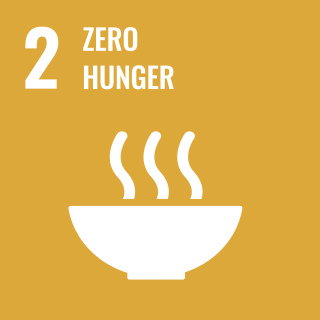 Fellows: Molly Borritt, Tayte Brown, Maëlle Defer, Johan Leander, Vishwa Srinivasan, Annie (ZiRui) Zhou
Fellows: Molly Borritt, Tayte Brown, Maëlle Defer, Johan Leander, Vishwa Srinivasan, Annie (ZiRui) Zhou
Impact initiative goal: To bridge the gap between food loss on the supply side and food shortage on the demand side
FeeMo, short for Feeding Montreal, partners with food suppliers and community food organizations to save grocery stores’ excess food and match it with the increasing demand that food banks and other community food organizations have for food. The FeeMo team takes care of logistical burdens involved with the food rescue process and matches each food delivery to a volunteer who completes the route. In the first three months that FeeMo started their mission, they delivered 581kg of food to food banks and soup kitchens, which is equivalent to 1065 meals. This simultaneously reduced 1104kg of CO2 emissions from food that would have been wasted if not rescued.
MindVista
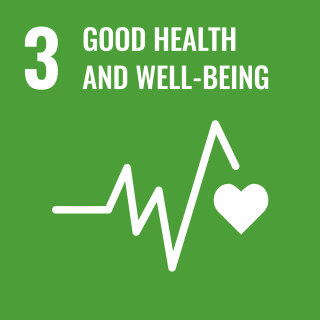 Fellows: Safiia Abdulkadyrova, Lauren Harrison, Hana Jamal
Fellows: Safiia Abdulkadyrova, Lauren Harrison, Hana Jamal
Impact Initiative Goal: To provide a one-stop-shop for wellness and engagement at McGill
MindVista focuses on improving mental wellness awareness on campus to ensure students have access to the many engagement and wellness opportunities that McGill has to offer. MindVista accomplishes this mission through their website: mindvista.ca. While piloting their project, MindVista was able to attract 900+ visits on their website with 200+ unique visitors. As of April 2023, two MindVista newsletters have been published with 488 subscribers and an unsubscription rate of only 0.01%.
HYGIA
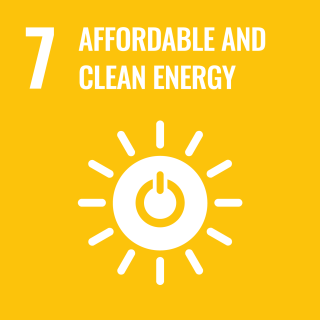 Fellows: Gabby Hartshorne-Mehl, Jingwen He, Alex Main, Izabella Tyc, Yasmin Salehi-Banadaki
Fellows: Gabby Hartshorne-Mehl, Jingwen He, Alex Main, Izabella Tyc, Yasmin Salehi-Banadaki
Impact initiative goal: Create resources to solve the problem of Quebec Hydro projects failing to compensate Indigenous communities.
HYGIA developed a cash flow model to estimate the impacts of not having a benefit sharing agreement for hydro assets on indigenous land. The HYGIA team did this by using historical hydro production and price data to project historical and future revenue. They found that the lack of a benefit sharing agreement resulted in a lost value ranging from $180 to $910 million—displaying a large opportunity for revenue justice—which is detailed in their proposal and research report.
ST(RIDE)
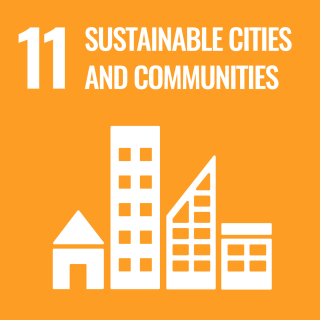 Fellows: Amine Kobeissi, Casey Luk, Crystal Lin, Fiona Chang, Mingshu Liu, Zhixuan Ren
Fellows: Amine Kobeissi, Casey Luk, Crystal Lin, Fiona Chang, Mingshu Liu, Zhixuan Ren
Impact initiative goal: Bridging existing gaps in accessible transportation
The ST(RIDE) project aims to increase the ease of travel for the vision loss community in Montreal with a focus on independence, safety, and universal design. The initiative has created a smartphone application prototype with a built-in voiceover feature for navigation when taking the metro. The ST(RIDE) team wants to grow and improve their app prototype, seek and maintain more partnerships, and conduct more pilot tests.
Dr’im
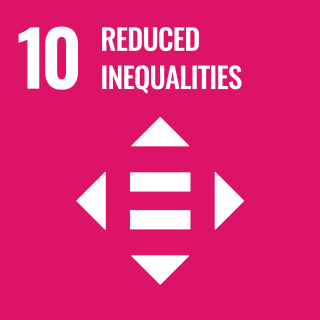 Fellows: Andrew Ma, Catherine Thomas, Gery Delepiere, Maëlle Morin, Mariama Ba
Fellows: Andrew Ma, Catherine Thomas, Gery Delepiere, Maëlle Morin, Mariama Ba
Impact initiative goal: Facilitating newcomers’ integration by supporting cultural exchange programs
The initiative aims to create a networking platform enabling effective cultural exchange. Dr’im fosters the development of buddy-system programs by pairing newcomers with locals throughout Montreal, facilitates immigration centres’ buddy-system matching process, partners with local businesses to welcome pairs to local activities and events, and partners with neighbourhoods to enhance the number of participants in buddy programs.
StartED
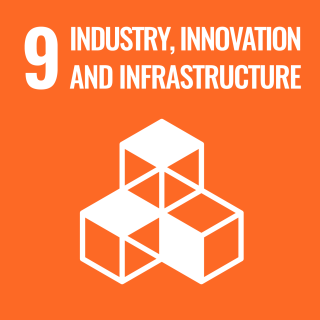 Fellows: Claudio Cichi, Oceanne Guy, Michelle Kim, Eva Koall, Tanguy Montandon, Grace Williams
Fellows: Claudio Cichi, Oceanne Guy, Michelle Kim, Eva Koall, Tanguy Montandon, Grace Williams
Impact initiative goal: Helping social enterprises overcome difficulties in accessing financing
StartED created a website with three main pillars: a centralized business-building resource on a user-friendly platform with a contact page, a filtering system to give tailored recommendations based on business stage and financing ask, and an easy to disseminate platform to reach target beneficiaries and key stakeholders. The initiative expects to create impact in the future with projected yearly growth of 130 new enterprises.
Compost Montreal
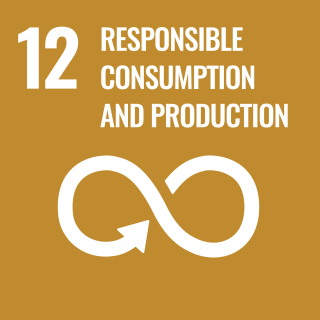
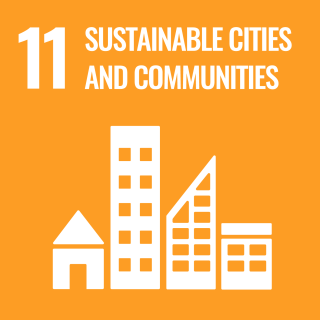 Fellows: Muskaan Bhaidani, Karin Chen, Xu Han Fu, Adam Livshits, Danlin Luo, Atharva Shirsat
Fellows: Muskaan Bhaidani, Karin Chen, Xu Han Fu, Adam Livshits, Danlin Luo, Atharva Shirsat
Initiative impact goal: Bridging the knowledge gaps in the composting system
Compost Montreal is bringing awareness about compost materials on campus to support individuals making waste disposal decisions. For the long-term, the project hopes to help students think more about where their waste goes and actively engage in making the correct disposal choice, to reduce the compost contamination effect and further enable McGill to become the microcosm of Montreal.
Distinctively Diverse
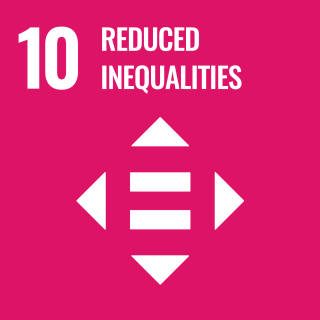
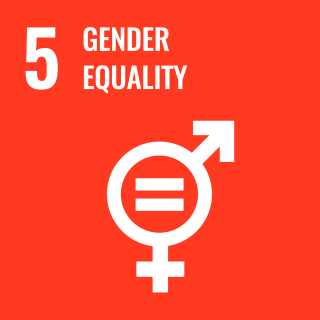 Fellows: Bo Wen Chen, Sofi Sun, Marianna Tokarcik-Bermudez, JiPeng Li, Woo Park
Fellows: Bo Wen Chen, Sofi Sun, Marianna Tokarcik-Bermudez, JiPeng Li, Woo Park
Impact Initiative Goal: Improving DEI in offices to create competitive advantage
This initiative aims to improve DEI in companies. DEI companies are seeing more profitability from top quartile companies relative to the last quartile, in terms of diversity, with higher financial returns in gender-diverse investment firms. Distinctively Diverse aims to increase the number of diverse candidates who can bring a competitive advantage to firms in business-related industries. The project proposes the solution of creating infographics targeting students, creating insightful reports for middle managers, and an interactive web platform for research findings. The project hopes to create an impact by increasing awareness and opportunities for DEI initiatives, empowering future employees, providing a considerable amount of research and expertise through the field, improving perspectives on DEI initiatives, and promoting DEI much more in organizations.
The Free Throw Initiative

 Fellows: Tom Sechenyron, Tina Tan, Rudi Villemaux, Thomas Wakeham
Fellows: Tom Sechenyron, Tina Tan, Rudi Villemaux, Thomas Wakeham
Impact initiative goal: Making sports more accessible to marginalized communities in the city of Montreal
This project aims to level the playing field when it comes to sports accessibility in Montreal. Currently, there are high percentages of children who are inadequately active in physical activity. Further, new Canadians, racialized communities, indigenous people, and the LGBTQ+ community do not participate in sports at the same level. This project aims to bridge the gaps in infrastructure, human resources, equipment, and time, so sports can be accessible. The project first aims to make an impact in Montreal-Nord by conducting a year-long pilot of various sports, then choosing the community’s favourite sport, and lastly connecting to sports clubs for the chosen sport through borough partnership. The impact the project hopes to create is for students to be able to play sports in a professional environment, with sliding-scale prices, so they can adopt healthy, long-lasting life practices.

